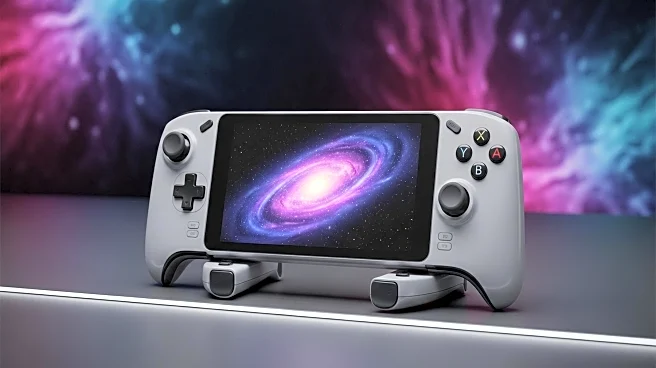What is the story about?
What's Happening?
Nintendo has introduced the Switch 2, which brings back the classic Super Mario Galaxy game with enhanced features. Originally released for the Wii, Super Mario Galaxy is known for its innovative gravity simulation gameplay. The Switch 2 version offers improved textures, 4K resolution, and a new 'Assist Mode' that provides extra health and automatic rescue for Mario. The game can be played using Joy-Con 2 controllers, which simulate the original Wii Remote's pointer functionality through built-in gyroscopes. Despite some initial issues with controller registration, Nintendo assures that these will be resolved in the final version. The Switch 2 also supports Pro controllers and third-party gamepads with gyro capabilities.
Why It's Important?
The re-release of Super Mario Galaxy on the Switch 2 is significant for both Nintendo and gaming enthusiasts. It demonstrates Nintendo's commitment to revitalizing classic games with modern technology, potentially attracting both nostalgic players and new audiences. The enhanced graphics and gameplay features could boost sales and strengthen Nintendo's position in the competitive gaming market. Additionally, the introduction of gyro controls and the 'Assist Mode' may make the game more accessible to a wider range of players, including those who found the original controls challenging.
What's Next?
Nintendo plans to sell Super Mario Galaxy and its sequel separately for $40 each, or together for $70. This pricing strategy suggests a focus on maximizing revenue from classic titles while offering value through bundled purchases. As the Switch 2 gains traction, Nintendo may continue to re-release other popular Wii games with similar enhancements. The gaming community is likely to watch closely for further updates and potential new features in upcoming titles, such as Metroid Prime 4, which is expected to utilize similar gyro and mouse controls.
Beyond the Headlines
The Switch 2's approach to reviving older games with modern technology raises questions about the future of gaming consoles and the preservation of classic titles. By enhancing graphics and gameplay mechanics, Nintendo is setting a precedent for other companies to follow, potentially leading to a trend of remastering older games for new platforms. This could impact the gaming industry's focus on innovation versus nostalgia, as companies balance the demand for new experiences with the appeal of beloved classics.















